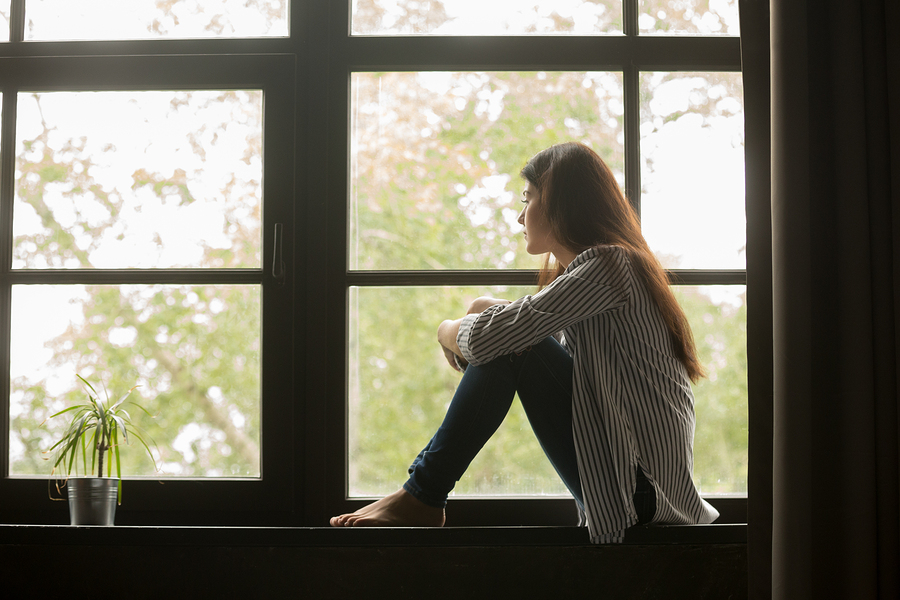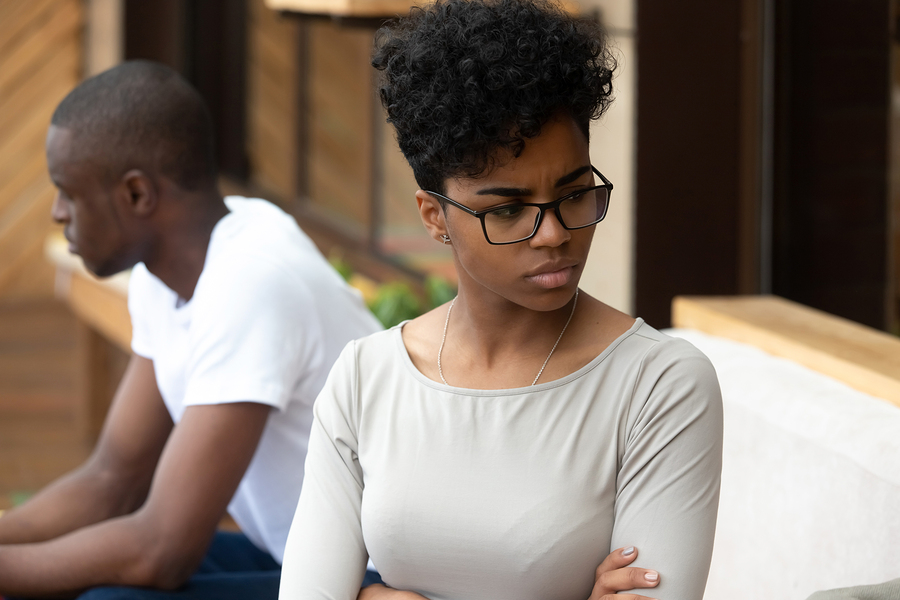Are you constantly worried about your partner’s mental illness? Are you afraid that things will never get better?
The National Alliance on Mental Illness states that 1 in 4 people will suffer from a mental illness this year. 1 in 17 people continue to live with chronic mental illnesses such as schizophrenia, bipolar disorder, or major depression. The chances are pretty high that you will fall in love with someone who suffers from a mental illness or mood disorder. It’s also extremely likely that you’ll both find unexpected obstacles on the road to happy endings. No love story is complete without a few bumps in the road, but mental illnesses can throw a lot of unexpected hurdles into the mix.
That said, I’m here to deliver good news.
Your relationship is not doomed. The very fact that you’re reading this article is a sign that you care deeply about your partner, and that is immensely valuable. You are taking time to do your research. That’s important. The more you know about mental illness, the better off you’ll be in overcoming it together.
More good news:
If your partner suffers from a mood disorder or mental illness, this does not make them weak. Behind every “I’m fine” lives a special kind of strength that’s not common for the average person. That said, If your partner is not aware of their own mental illness, or you feel they are endangering you or themselves, stop reading and help them find professional help immediately. If your partner is emotionally, mentally or physically abusive toward you, get as far away as possible.
This article is not meant to diagnose or treat mental illness. It’s about loving someone in active recovery. I’m going to assume, for the sake of this article, that your partner loves you and wants to make you happy. Your partner wants to overcome their illness. And they’re trying.
I’m trying.
The morning after a difficult night, my brain sounds a little like this: I feel so ashamed of my [meltdown/episode/panic attack/etc]. I wish he didn’t have to see that. I want to be better. I want to make my partner as happy as he makes me. I would love to go the rest of my life without this happening again…but what if it does? What if I never get better?
And then my partner wakes up and says he loves me. And I find strength. My mind discards my toxic thoughts and decides: I will keep fighting – for both of us. Opening my heart to my partner and committing to making him happy was the biggest decision I ever made. I worried my issues would make me unlovable, that it would become too much for him. I still deal with those fears. But time and time again, my partner proves me wrong. He reminds me that he’s in this, with me.
Mental illness has not made us weaker than the average couple. I think it’s made us stronger.
Now, you may be wondering –If your partner struggles being happy, how can you be happy together? If your lover is afraid to leave the house, how will you go on adventures? If they suffer panic attacks when you feel everything is going well, what’s going to happen when life throws in new challenges?
It’s a learning process. My partner didn’t always know how to cope, and in many ways we’re still learning. But in spite of the struggles we’ve faced, our relationship has been overwhelmingly happy.
Many people confuse need with neediness. Know the difference: If a person has an asthma attack, you give them an inhaler. If a person has a panic attack, the antidote is equally important. This may be my battle, but I’m not the only one fighting. And that has made all the difference.
As the partner of a person with a mental illness, you are also at war. Here are your weapons.
Step 1: Know your enemy.
Understand your partner’s illness – causes, symptoms, and recommended treatments. Most mental illnesses can be overcome. Your partner most likely isn’t “crazy” – they’re a regular person who needs help overcoming trauma or negative childhood programming. Understanding this can be the difference between alienating your partner and growing closer with them. If they go to therapy, show your support by encouraging them. Talk with them about what they’re going through. And if you both go to therapy, that’s even better. For your partner, knowing that you’ve got their back is a huge deal. And the more you know about the monster, the better equipped you’ll be to fight it. This means becoming familiar with your partners emotional triggers, coping strategies, and what they need in moments of crisis.
Step 2: Don’t leave your partner in the battlefield – but make some distance if you need to.
If you’ve graduated Step 1, you know what they’re dealing with. You understand the monumental effort it takes for them to cope with their pain, and you know that support from you is critical for their recovery. So if (or when) the battle gets too intense and you’re suddenly unable to cope, make it clear that you love them and that you’re not leaving. Then step away. Why? Read step 3.
Step 3: Take care of you.
To play on a team, all players need to develop their strength individually in order to work well as a unit. This is ultimately their battle. They know this. On airplanes, when the oxygen masks come down, you’re told to put yours on before helping anyone else. Here’s why: you can’t help anyone if you’re suffocating. Once you’re able to breathe again, you’re strong enough to assist your partner.
Step 4: Reassure them. A lot.
With anxiety and trauma-induced disorders especially, we worry. A lot. If you told your partner you loved them this morning, by the afternoon and they might be falling into a spiral of doubt. They may believe you when you say you love them, but certain mental illnesses can make it difficult to retain the feeling. It might feel ridiculous to reassure them so much, but it’s better to say ‘I love you’ too much than too little. Think of your relationship as an hourglass. Flip it over with reminders every once in a while, so the love keeps flowing.
Step 5: Don’t beat yourself up. It’s okay to give them space.
It’s important to separate yourself from their illness. If they’re unhappy because of you, you’ll know. But if they’re dealing with the symptoms of their mental illness, it’s not your job to feel responsible for it. I love my partner, but when I’m unhappy as a result of my illness, it actually makes it worse if he blames himself. Guilt and fear go hand in hand – one exacerbates the other. Your only job is to be supportive and understanding. Relationships are a two-way street, and you can’t do all the work, all the time. Just like drinkers at the pub like to say: know your limit, play within it. It’s not always your fault. Sometimes they need space to recover, just like you do. If you’re struggling with guilt, go back to Step 3 and repeat.
Step 6: Let your partner love you.
Your partner is not helpless. They can take care of you, too. Let them! Spend quality time together and see each other for what you are – two people in love. Mental illness is like having a physical ailment – if you spend every waking moment worrying about it, you miss out on life.
Step 7: L-I-V-E.
Mental illness thrives on fear. It eats fear for breakfast, it drinks fear at night. Lucky for us…Love is stronger than fear. In my favorite film, Harold and Maude, Maude says: “Reach out. Take a chance. Get hurt even. But play as well as you can. Go team, go!” All you can do is your best. Do that, and let love take care of the rest.
*Source: National Alliance on Mental Illness








